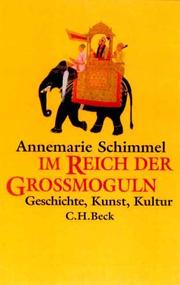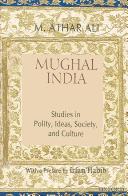| Listing 1 - 10 of 208 | << page >> |
Sort by
|
Book
Year: 1963 Publisher: London : Allen and Unwin,
Abstract | Keywords | Export | Availability | Bookmark
 Loading...
Loading...Choose an application
- Reference Manager
- EndNote
- RefWorks (Direct export to RefWorks)
Book
Year: 1958 Publisher: Haarlem : Tjeenk Willink,
Abstract | Keywords | Export | Availability | Bookmark
 Loading...
Loading...Choose an application
- Reference Manager
- EndNote
- RefWorks (Direct export to RefWorks)
Book
Abstract | Keywords | Export | Availability | Bookmark
 Loading...
Loading...Choose an application
- Reference Manager
- EndNote
- RefWorks (Direct export to RefWorks)
Book
Year: 1959 Publisher: Agra : Shiva Lal Agarwala,
Abstract | Keywords | Export | Availability | Bookmark
 Loading...
Loading...Choose an application
- Reference Manager
- EndNote
- RefWorks (Direct export to RefWorks)

ISBN: 3406464866 Year: 2000 Publisher: München Beck
Abstract | Keywords | Export | Availability | Bookmark
 Loading...
Loading...Choose an application
- Reference Manager
- EndNote
- RefWorks (Direct export to RefWorks)
Book
Abstract | Keywords | Export | Availability | Bookmark
 Loading...
Loading...Choose an application
- Reference Manager
- EndNote
- RefWorks (Direct export to RefWorks)

ISBN: 0195648609 9780195648607 Year: 2006 Volume: *3 Publisher: Oxford [etc.] Oxford University Press
Abstract | Keywords | Export | Availability | Bookmark
 Loading...
Loading...Choose an application
- Reference Manager
- EndNote
- RefWorks (Direct export to RefWorks)
This volume draws on a wide range of sources to chart political, social, economic, and administrative aspects of the Mughal empire.
Mogul Empire. --- India --- History
Book
ISBN: 1139505939 1108055133 Year: 1786 Publisher: Place of publication not identified : Cambridge : publisher not identified, Cambridge University Press
Abstract | Keywords | Export | Availability | Bookmark
 Loading...
Loading...Choose an application
- Reference Manager
- EndNote
- RefWorks (Direct export to RefWorks)
A nobleman of the court of the Mughal emperor, Iradat Khan (c.1649-1716) experienced the rule of Aurangzeb (1618-1707) and observed at first hand the decline of the Mughal empire. This English translation of his memoirs was first published in 1786 by Jonathan Scott (1754-1829), a captain of the East India Company. He translated Khan's memoirs in order to educate the British about India's history and inform them about the Mughal empire. In these memoirs Khan relates anecdotes of his encounters with Aurangzeb and recounts the events following the emperor's death, including the rule of his son Bahadur Shah (1643-1712) between 1707 and 1712. The memoirs conclude with the death of Jahandar Shah (1661-1713), who ruled only briefly before being beaten in battle, captured and executed. Also included are extracts from Aurangzeb's last letters.
Mogul Empire --- India --- History
Book
ISBN: 9780210339350 0210339357 Year: 1972 Publisher: London: Asia publishing house,
Abstract | Keywords | Export | Availability | Bookmark
 Loading...
Loading...Choose an application
- Reference Manager
- EndNote
- RefWorks (Direct export to RefWorks)
Muslims --- Mogul Empire. --- India
Book
ISBN: 0195617258 Year: 1987 Publisher: Delhi : Oxford university press,
Abstract | Keywords | Export | Availability | Bookmark
 Loading...
Loading...Choose an application
- Reference Manager
- EndNote
- RefWorks (Direct export to RefWorks)
Can the structure of the 15th-century Indian economy be analyzed on a quantified basis, as can a contemporary economy? Taking advantage of the immense amount of statistical material in the Ain-i Akbari, the great official compilation of the Mughal empire, this book revises the widely held views on a number of economic conditions of the day, and weighs general impressions against a rigorous analysis of properly quantified data.
| Listing 1 - 10 of 208 | << page >> |
Sort by
|

 Search
Search Feedback
Feedback About UniCat
About UniCat  Help
Help News
News